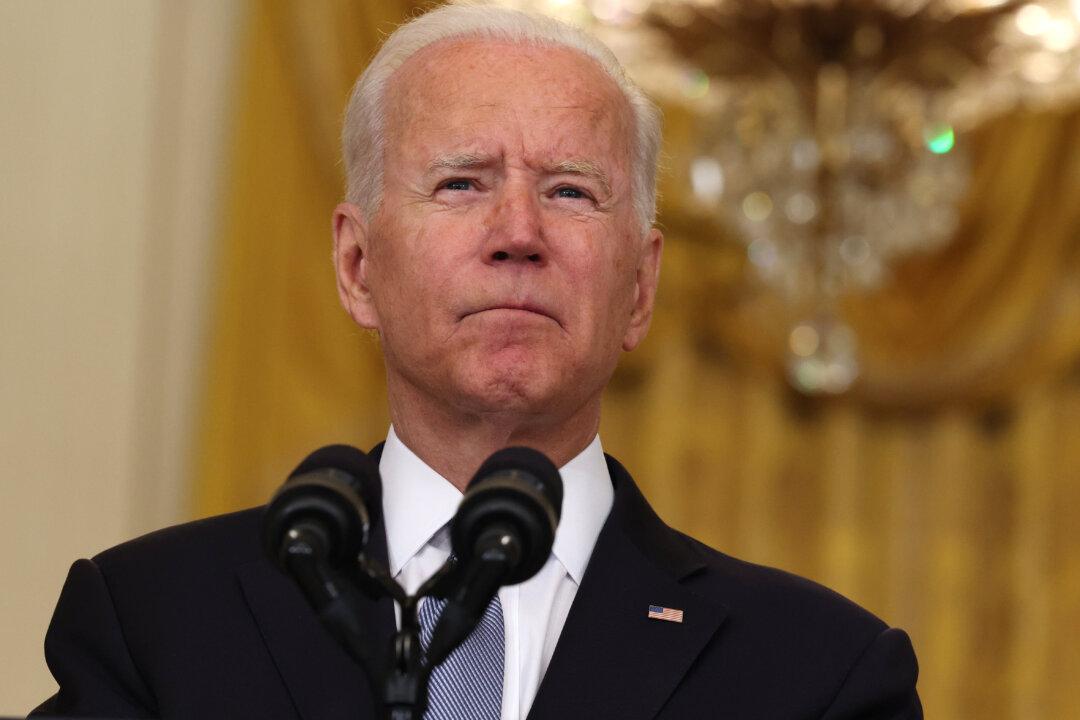As the Taliban rapidly establishes its rule over Afghanistan, President Joe Biden has recommitted his administration to withdrawing U.S. troops.
Biden doubled down on his withdrawal plan at a White House press conference on Aug. 16. He spoke for less than 20 minutes and didn’t take questions from reporters, delivering instead a similar message to what he’s said since taking office in January.




